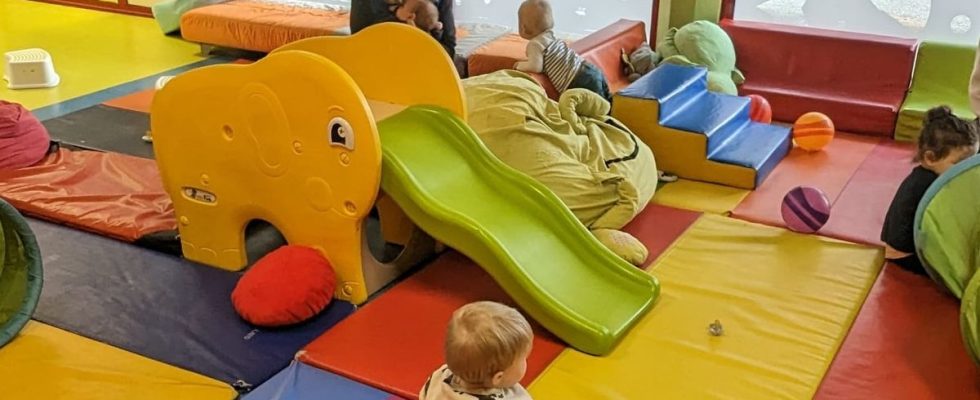“Mistreatment in crèches, unfortunately, is real”, admits Jérôme Dumortier, director of an associative crèche in Villeneuve-d’Ascq, in the North. In this crèche run by parents, he established a golden rule of educational non-violence almost ten years ago. A principle that contrasts with the recent report, considered alarming, of the General Inspectorate of Social Affairs on the conditions of reception of children in crèches.
This report has moved many parents and plunged the early childhood sector into unease. Ahead of the International Day of Educational Non-Violence, which takes place on Sunday, 20 minutes went to meet this particular nativity scene.
“Here, we trust the children”
Arriving in front of Les Souriceaux, the bay window announces the color. “Let’s never forget that today’s children are tomorrow’s adults”, “Attention, happy children here” are all slogans displayed on the windows. Another surprise, you can observe children and childcare assistants from the outside, proof of a place open to the world.
“Here, we trust the children. We treat them as people in their own right,” announces Jérôme Dumortier. Throughout the year, 25 children are looked after, from morning to evening, by six educators and auxiliaries, all qualified despite the possibility, since August, of recruiting untrained staff. “This decision is a disaster, denounces the director. Taking care of children is a real job that can be learned. »
In a large room, a dozen toddlers frolic or listen to a story. One of them has a little grief. Stéphanie, an auxiliary, comes to comfort him: “It happens from time to time. At that age, they need a lot of presence.
“With us, the proportion is one professional for 4.16 children. This is necessary because children often need to be changed. Imagine a nursery where there are only two professionals for sixteen children, which often happens in private nurseries. If one of the little ones needs to be changed, that means the second employee has to be left alone with fifteen young walkers. It is impossible, they are not superheroes”, denounces the director.
With children, you have to be patient
For him, the lack of manpower is one of the keys to the problem. “What’s wrong is to make money in human-related jobs,” he explains. Who says lucrative, says shareholders. Shareholders want nuggets. To make a profit, it is necessary, for example, to reduce the quantities and quality of food or the number and qualification of employees, while remaining in the nails. »
But what happens when one child bites another, a fairly standard situation in early childhood? “At the start, we console the child who has been bitten, alongside the one who bit him. We explain to him that his/her friend is in pain, he/she is crying. We show him the mark and we tell him that it is forbidden. Generally, the child who bit, heals the wound. Children learn by repetition, so it can start again,” says the director. With children, you have to be patient.
And the principle is to defuse all forms of violence. “There is also violence at home, at school or in leisure. I think that if we put the package for children, there would be much fewer problems, in particular, by increasing salaries, and by reviewing training and supervision rates. »
“From an educational point of view, we are in total shambles”
In 2014, the nursery had to deal with a story of spanking given to a child by a professional. “We decided to dismiss her immediately, remembers Jérôme Dumortier. This case allowed us to put a lot of things in place, including campaigning against ordinary educational violence. He himself is a member of the board of directors of the association “Stop ordinary educational violence”, which carries out actions throughout France. This is why the crèche opens its doors on Sunday, on the occasion of the day of educational non-violence.
“When we talk about violence in children, we always think of spanking when there are threats, humiliation, blackmail, shouting at a child… Things that are still very much in place today in France , says Jérôme Dumortier. From an educational point of view, we are in total shambles. »

